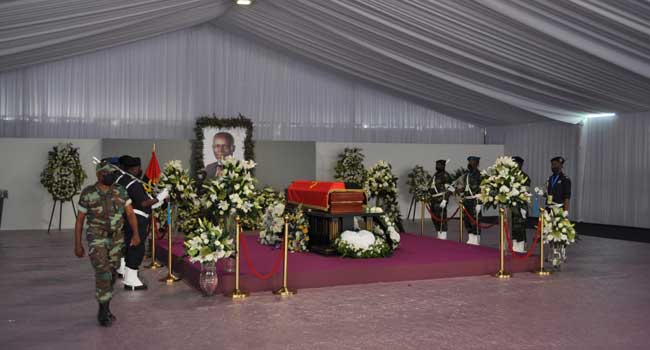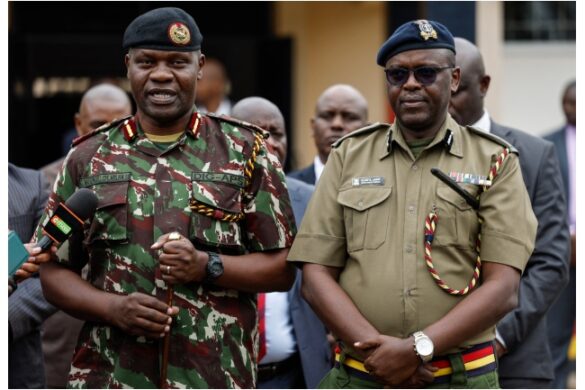Angolans and a dozen African leaders gathered on Sunday for the state funeral of former strongman president Jose Eduardo dos Santos, whose nearly four-decade rule of the oil-rich nation was marred by allegations of plunder and nepotism.
The ceremony is taking place in the capital Luanda on what would have been dos Santos’s 80th birthday, and comes days after his party, the People’s Movement for the Liberation of Angola (MPLA), saw its worst results at the polls in the most hotly contested elections since independence.
Dos Santos will be buried with military honours — there will be cannon fire and a minute’s silence. Family and MPLA members are expected to speak at the ceremony led by President Joao Lourenco in Luanda’s Praca da Republica.
Dos Santos died last month at a clinic in Barcelona following a cardiac arrest.
Some of his children were at loggerheads with the government and his estranged wife over where and when he was to be buried.
But a Spanish court last week ruled that the body be returned to his wife in Angola.
His eldest daughter Isabel dos Santos, who has faced a slew of investigations into her multinational business dealings, last week wrote on Instagram that she would not be able to attend the funeral.
Dos Santos led the country from 1979 to 2017 under the MPLA banner. His party notched up its worst electoral performance in this week’s polls.
After 97 percent of the results were tallied, an initial count showed the MPLA had won 51.07 percent of the vote, with 44.05 percent for the party’s main rival, the National Union for the Total Independence of Angola (UNITA).
UNITA — which fought a bitter 27-year civil war against the MPLA government — has rejected the results.
Five members of the election commission have threatened not to sign off the results.
“Let’s hope that… a solution can be found to what is happening in the country”, commissioner Francisco Vieira told a press conference on Saturday.
Under dos Santos’s tenure, Angola became one of Africa’s top oil producers. While dos Santos and his family reaped vast wealth from Angola’s resources, most of the country’s 33 million people remain among the poorest in the world.
As one of the longest-ruling African leaders, he established himself as a political heavyweight beyond the country’s borders.
Weakened by age and illness, he stepped down in 2017, appointing Lourenco as his successor, who now stands to gain a second term in office.
Dos Santos passed a series of laws before his departure from government, granting himself broad judicial immunity.




